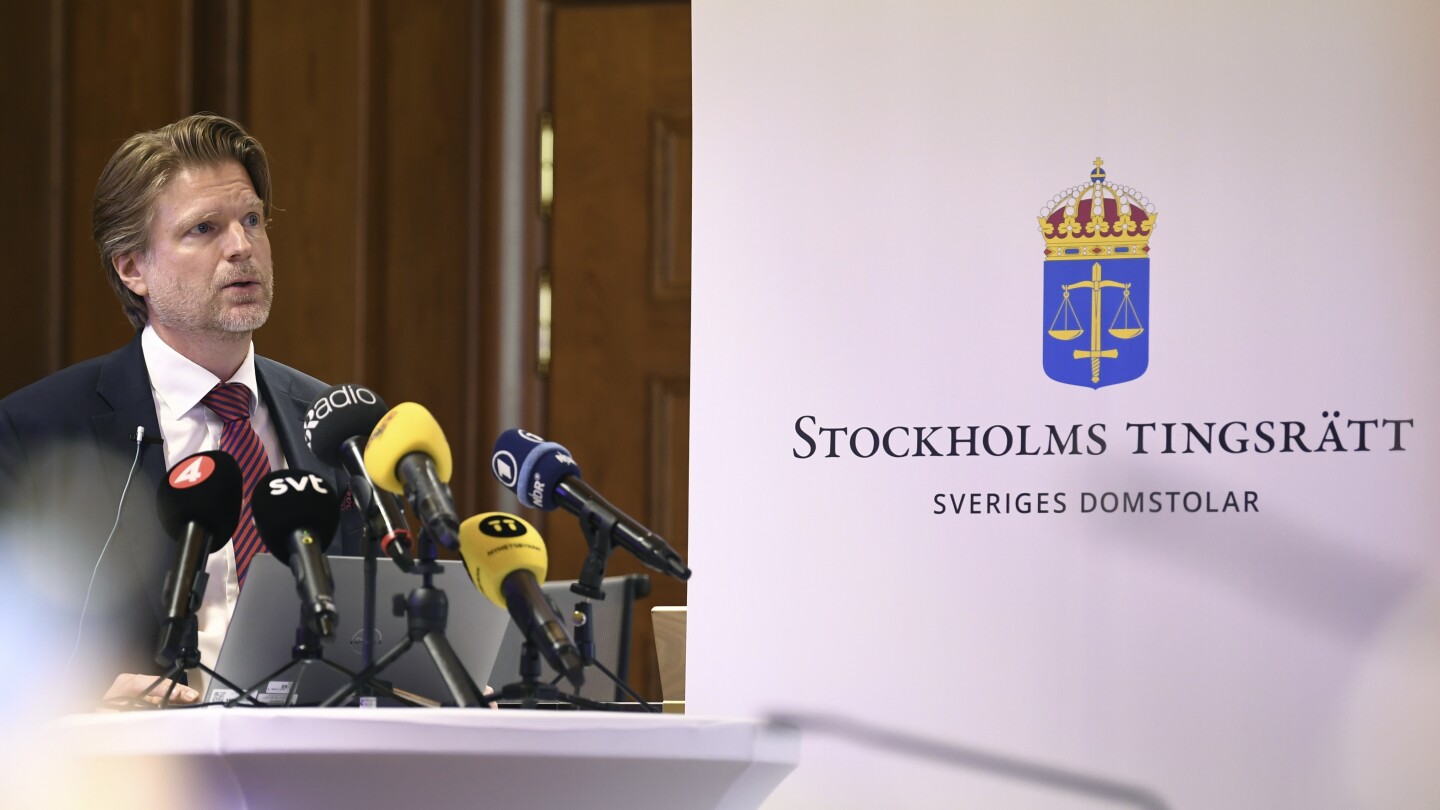STOCKHOLM (AP) — A Swedish appeals court on Wednesday upheld a 4 1/2-year prison sentence for a Turkish man who was found guilty of attempted extortion, weapons possession and attempted terrorist financing, saying he was acting on behalf of the outlawed Kurdistan Workers’ Party.
However, the Svea Court of Appeal said Yahya Güngör should not be deported after serving his sentence, reversing the lower court’s ruling.
“Since a possible expulsion is not too far in the future, the Court of Appeal considers that it is reasonable to believe that the obstacle will remain at that time,” the appeals court said, citing threats the man would face if deported to Turkey because of his ties to the party, also known as PKK.
In July, the Stockholm District Court said he would be expelled from Sweden after serving his sentence and banned from returning.
It was the first time that a Swedish court has sentenced someone for financing the party. PKK has waged an insurgency in southeast Turkey since 1984 and is considered a terrorist organization by Turkey, the United States and the European Union.
In May, Sweden tightened its anti-terrorism laws, a move expected to help gain approval for the Nordic nation’s request to join NATO. The revised laws include prison terms of up to four years for people convicted of participating in an extremist organization in a way that is intended to promote, strengthen or support such a group.
The following month, Güngör, a Kurd, was charged with attempting to extort money in Stockholm in January by pointing a revolver at a restaurant owner, firing in the air and threatening to damage the restaurant unless he received funds the following day. Güngör has denied any wrongdoing.
The lower court said the investigation into the case showed “that the PKK conducts a very extensive fundraising activity in Europe using, e.g., extortion of Kurdish businessmen.”
Last year, Sweden and neighboring Finland sought protection under NATO’s security umbrella after Russia invaded Ukraine. Finland joined the alliance earlier this year but Sweden, which abandoned a long history of military nonalignment, is still waiting to become NATO’s 32nd member.
New entries must be approved by all existing members, and Turkey has so far refused to ratify Sweden’s application. It said this was because Sweden has refused to extradite dozens of people suspected of links to Kurdish militant organizations. Turkey also has criticized a series of demonstrations in both Sweden and Denmark at which the Quran, Islam’s holy book, was burned.
At a NATO summit in Vilnius in July, Turkish President Recep Tayyip Erdogan said his country would drop its objection to Sweden’s membership after blocking it for more than a year. However, the Turkish parliament must still ratify the application, as must Hungary.

